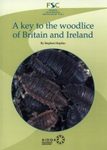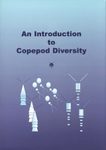Monograph
By: Martin Thiel(Editor), Les Watling(Editor)
571 pages, 4 plates with colour & b/w hotos and colour illustrations; b/w photos, b/w illustrations, tables
![The Natural History of the Crustacea, Volume 2: Lifestyles and Feeding Biology The Natural History of the Crustacea, Volume 2: Lifestyles and Feeding Biology]()
Click to have a closer look
About this book
Contents
Customer reviews
Biography
Related titles
About this book
This second volume in the Natural History of the Crustacea series examines how crustaceans – the different body shapes and adaptations of which are described in Volume 1 – make a living in the wide range of environments they inhabit, and how they exploit food sources. The contributions in The Natural History of the Crustacea, Volume 2: Lifestyles and Feeding Biology give synthetic overviews of particular lifestyles and feeding mechanisms, and offer a fresh look at crustacean life styles through the technological tools that have been applied to recent crustacean research. These include SEM (scanning electron microscope) techniques, micro-optics, and long-term video recordings that have been used for a variety of behavioral studies. The audience will include not only crustacean biologists but evolutionary ecologists who want to understand the diversification of particular life styles, ecologists who follow the succession of communities, biogeochemists who estimate the role of crustaceans in geochemical fluxes, and biologists with a general interest in crustaceans.
Contents
Chapter 1. The Role of Natural History in Understanding the Diversity of Lifestyles in Crustaceans
Les Watling and Martin Thiel
Chapter 2. Diversity of Lifestyles, Sexual Systems and Larval Development Pattern in Sessile Crustaceans
Benny K.K. Chan and Jens T. Høeg
Chapter 3. The Tube-dwelling Lifestyle in Crustaceans and its Relation to Feeding
P. Geoffrey Moore and Lucas B. Eastman
Chapter 4. Burrow-dwelling in Crustacea
R. James A. Atkinson and Lucas B. Eastman
Chapter 5. Crustaceans Inhabiting Domiciles Excavated from Macrophytes and Stone
Barbara A. Mejaes, Alistair G.B. Poore and Martin Thiel
Chapter 6. Crustaceans in Mobile Homes
Patsy A. McLaughlin
Chapter 7. Crustaceans as Symbionts: An Overview of their Diversity, Host Use and Lifestyles
J. Antonio Baeza
Chapter 8. Predator Adaptations of Decapods
Kari L. Lavalli and Ehud Spanier
Chapter 9. Small Free-living Crustaceans
Richard B. Taylor
Chapter 10. Planktonic Crustaceans: Lifestyles in the Water Column
Rubén Escribano and Ramiro Riquelme-Bugueño
Chapter 11. Oxygen Lifestyles of the Species-rich and Fabulous: the Deep-sea Crustaceans
George D.F. Wilson and Shane T. Ahyong
Chapter 12. Lifestyles of Terrestrial Crustaceans
Alastair Richardson and Paula Araujo
Chapter 13. Freshwater Crustaceans: Adaptations to Complex Inland Habitats and Species Interactions
Alan P. Covich
Chapter 14. Crustaceans of Extreme Environments
Chiara Benvenuto, Brenton Knott, and Stephen C. Weeks
Chapter 15. Filter-feeding Mechanisms in Crustaceans
Hans Ulrik Riisgård
Chapter 16. Deposit-Feeding: Obtaining Nutrition from Sediment
Les Watling
Chapter 17. Lifestyle of Detritus-Feeding Crustaceans
Sven Hammann and Martin Zimmer
Chapter 18. Grazers of Macroalgae and Higher Plants
Veijo Jormalainen
Chapter 19. Foraging Behavior of Crustacean Predators and Scavengers
Lucas B. Eastman and Martin Thiel
Customer Reviews
Biography
Les Watling is Professor in the Department of Zoology at the University of Hawaii. Martin Thiel is Professor of Marine Biology at the Universidad Catolica del Norte in Chile.
Monograph
By: Martin Thiel(Editor), Les Watling(Editor)
571 pages, 4 plates with colour & b/w hotos and colour illustrations; b/w photos, b/w illustrations, tables






















![The Encyclopedia of the Swedish Flora and Fauna, Kräftdjur: Krill – Tiofotade Kräftdjur [Swedish]](http://mediacdn.nhbs.com/jackets/jackets_resizer_medium/26/268174.jpg?height=150&width=118)



![Les Crustacés Décapodes des Petites Antilles: Avec de Nouvelles Observations pour Saint-Martin, la Guadeloupe et la Martinique [The Crustacean Decapods of the Lesser Antilles: With New Observations for Saint-Martin, Guadeloupe and Martinique]](http://mediacdn.nhbs.com/jackets/jackets_resizer_medium/24/245203.jpg?height=150&width=106)














